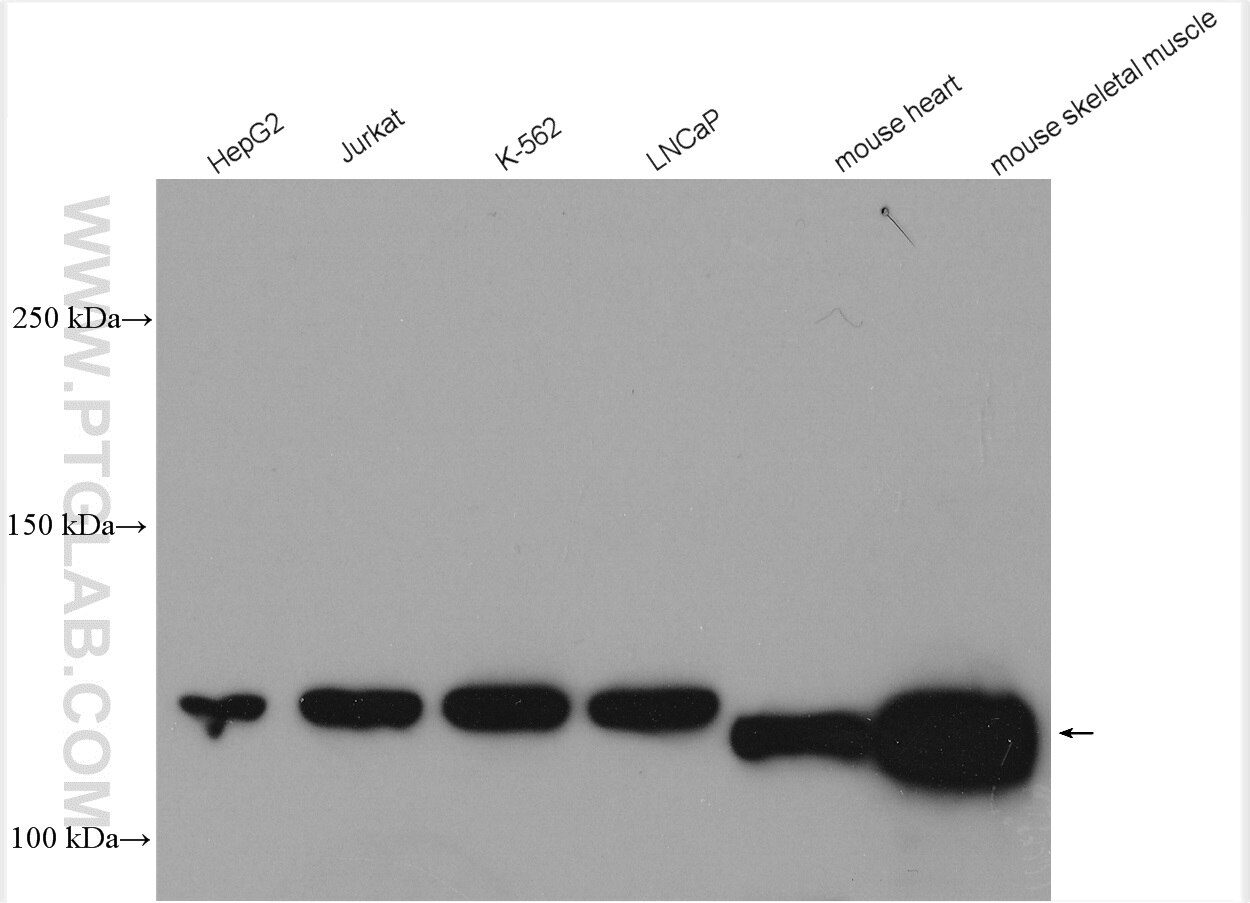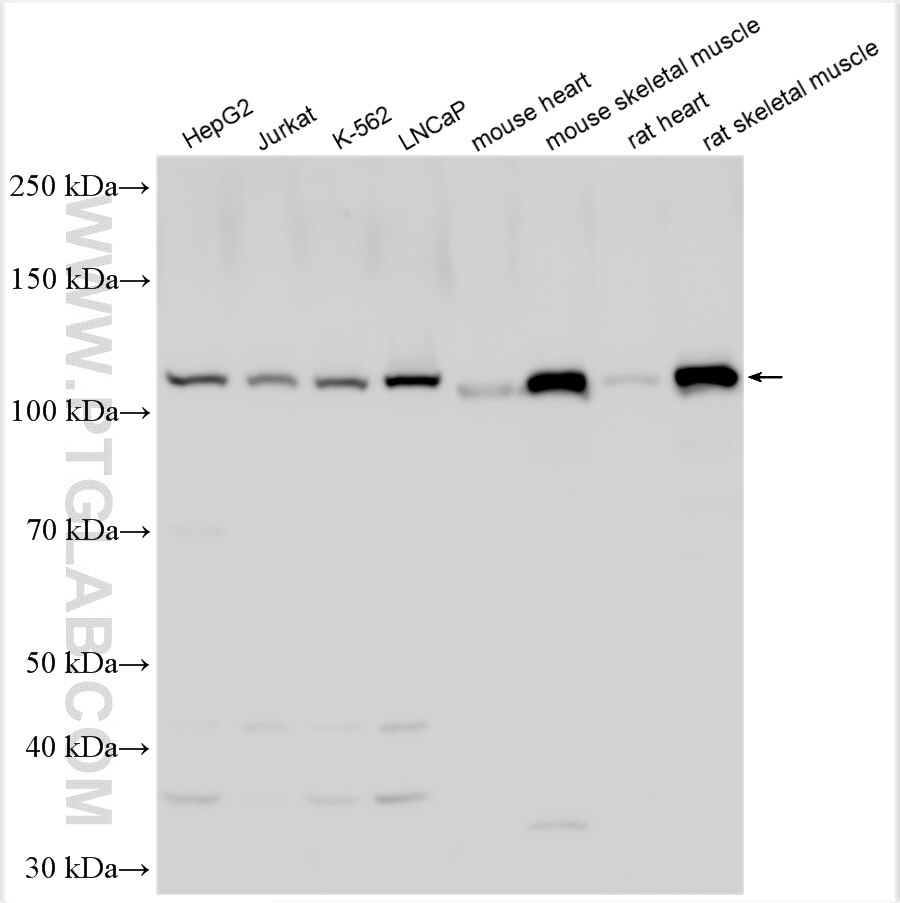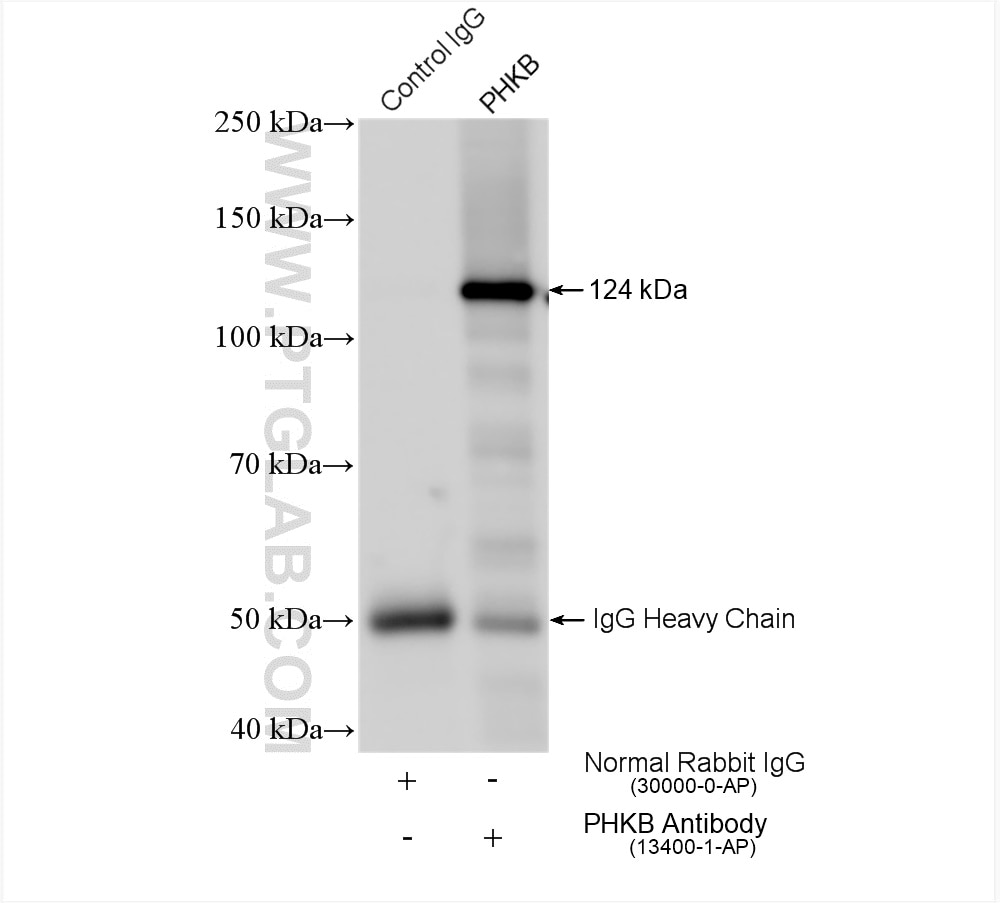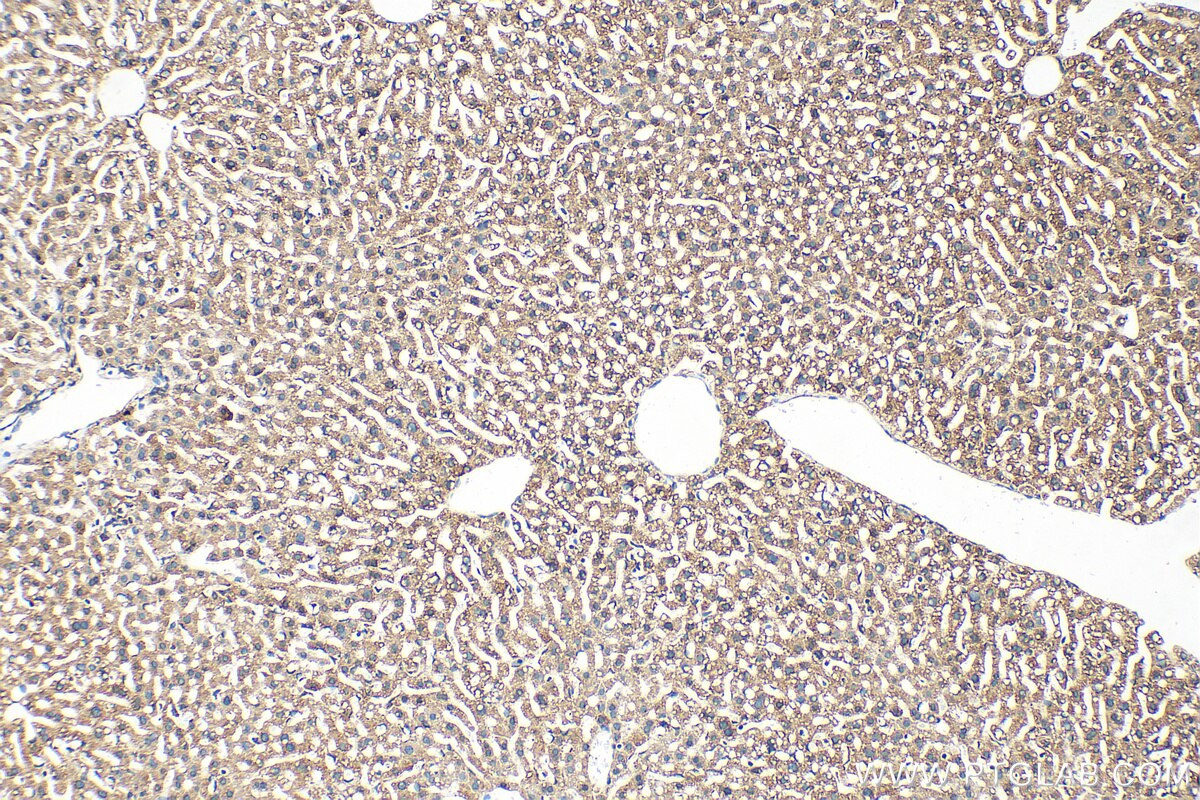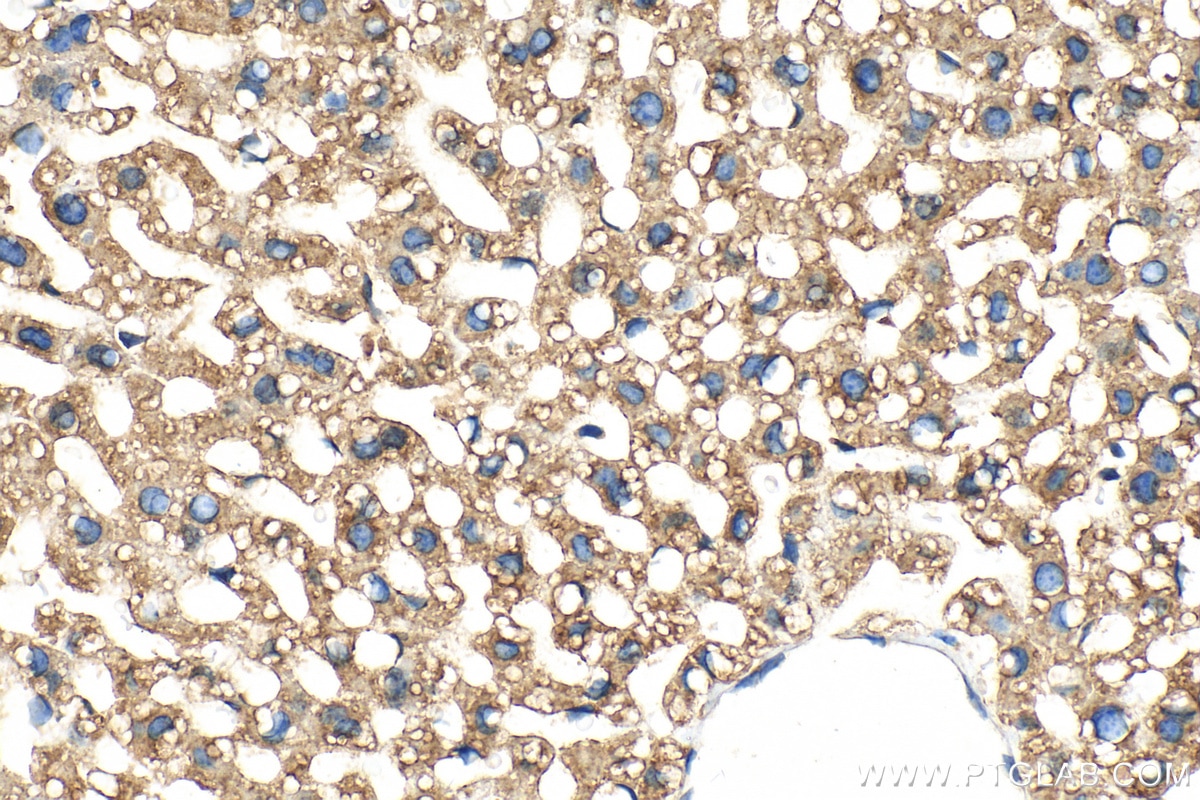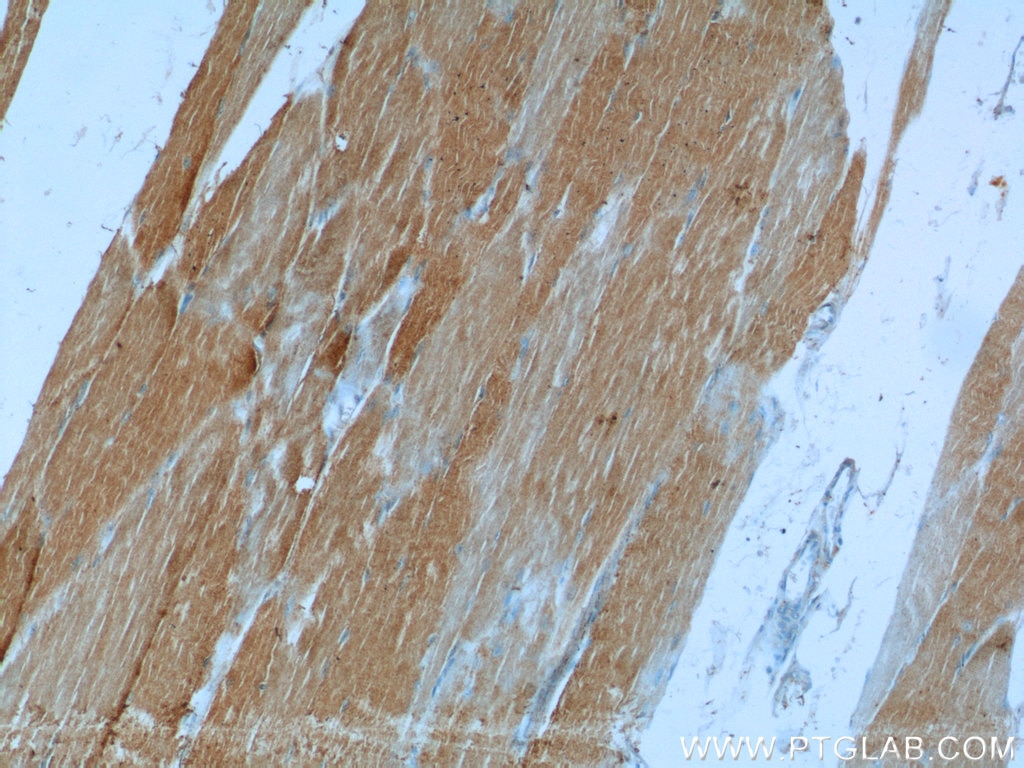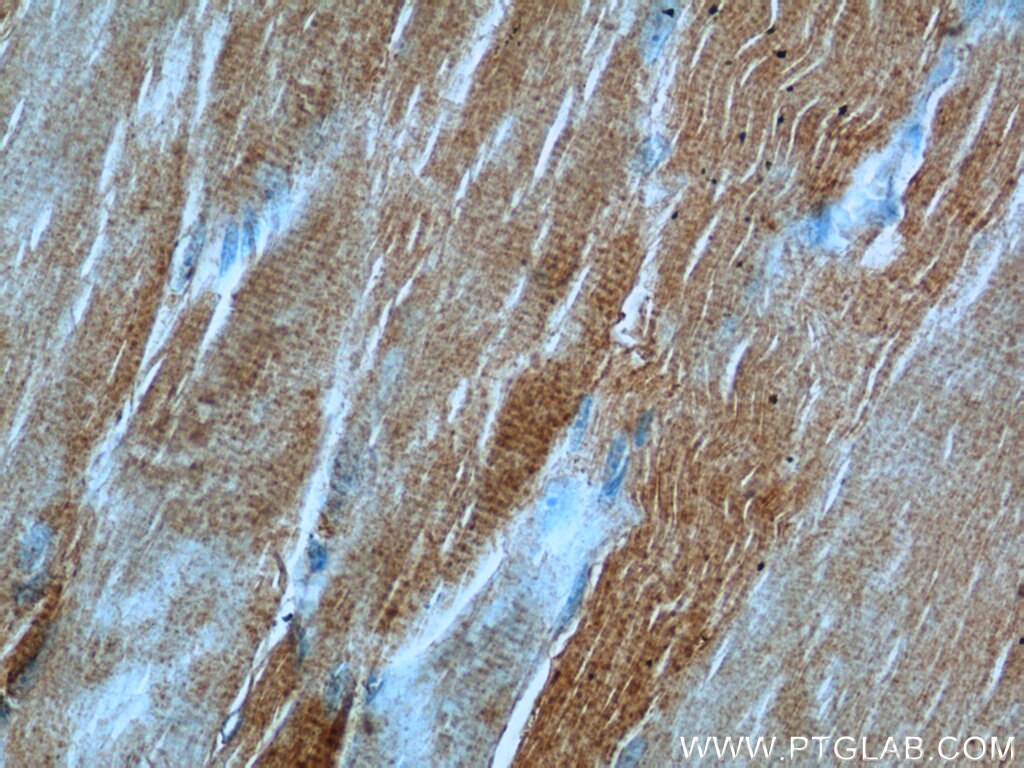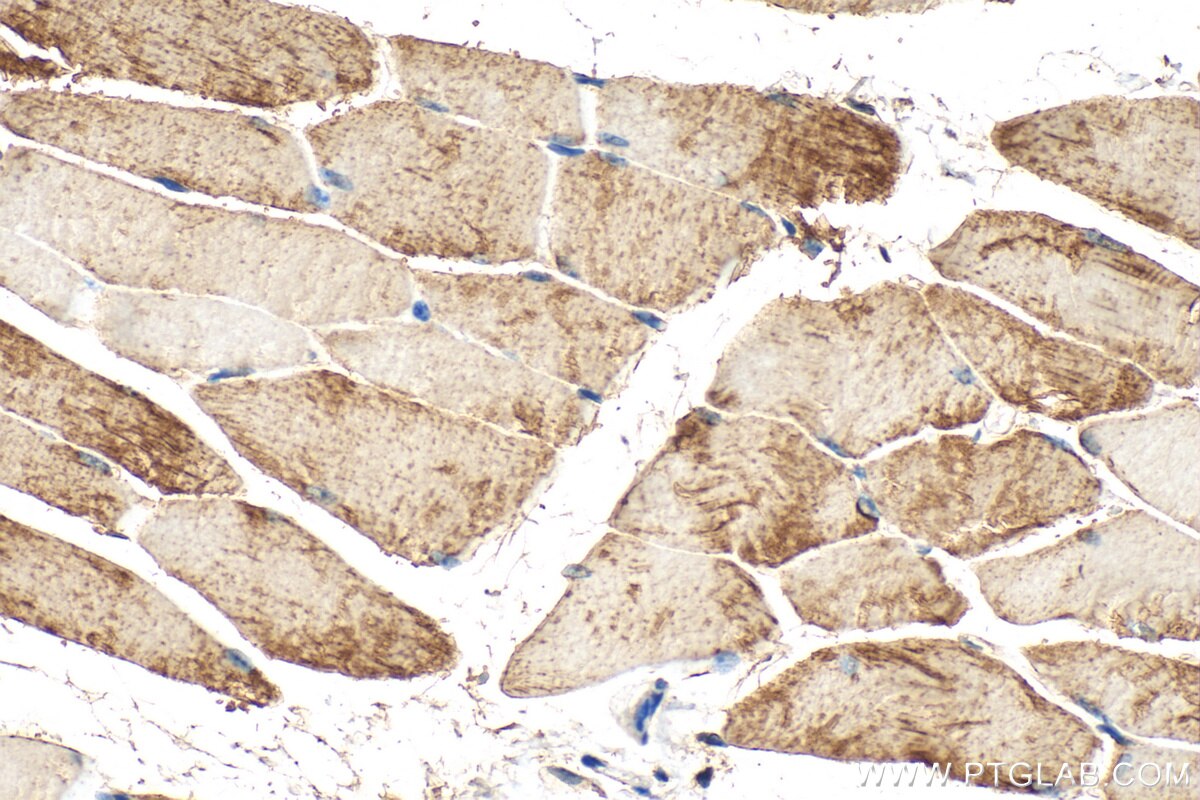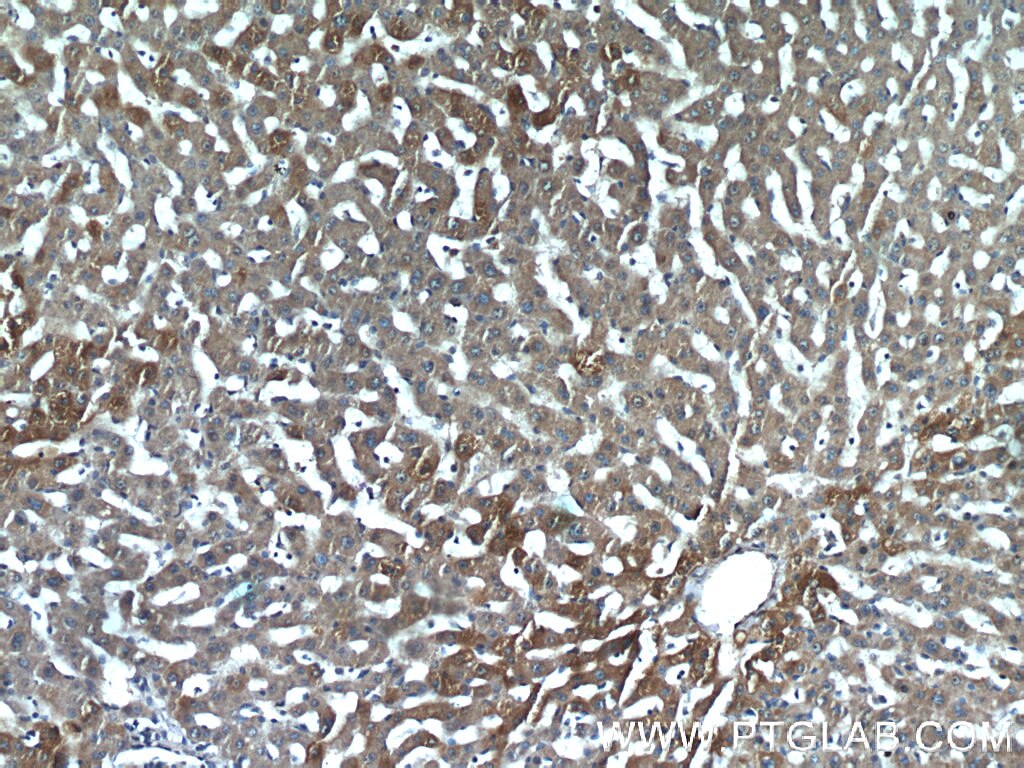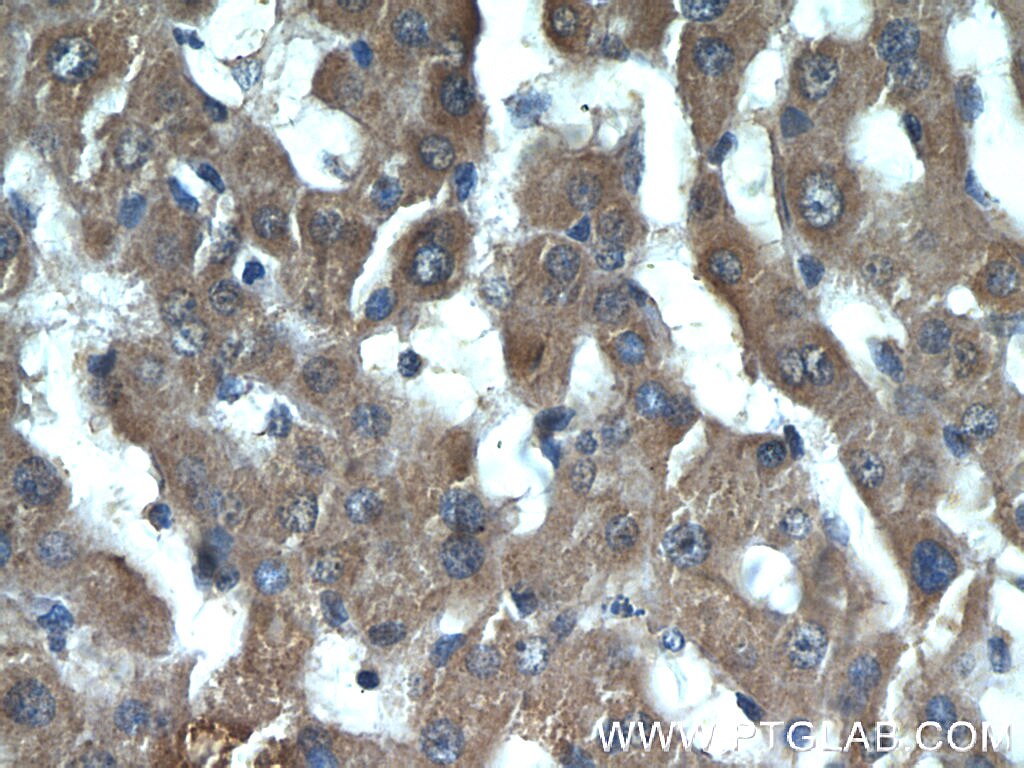- Phare
- Validé par KD/KO
Anticorps Polyclonal de lapin anti-PHKB
PHKB Polyclonal Antibody for WB, IP, IHC, ELISA
Hôte / Isotype
Lapin / IgG
Réactivité testée
Humain, souris
Applications
WB, IP, IHC, ELISA
Conjugaison
Non conjugué
N° de cat : 13400-1-AP
Synonymes
Galerie de données de validation
Applications testées
| Résultats positifs en WB | cellules HepG2, cellules Jurkat, cellules K-562, cellules LNCaP, tissu cardiaque de rat, tissu cardiaque de souris, tissu de muscle squelettique de rat, tissu de muscle squelettique de souris |
| Résultats positifs en IP | tissu cardiaque de souris, |
| Résultats positifs en IHC | tissu hépatique de souris, tissu de muscle squelettique de souris, tissu de muscle squelettique humain, tissu hépatique humain il est suggéré de démasquer l'antigène avec un tampon de TE buffer pH 9.0; (*) À défaut, 'le démasquage de l'antigène peut être 'effectué avec un tampon citrate pH 6,0. |
Dilution recommandée
| Application | Dilution |
|---|---|
| Western Blot (WB) | WB : 1:500-1:2000 |
| Immunoprécipitation (IP) | IP : 0.5-4.0 ug for 1.0-3.0 mg of total protein lysate |
| Immunohistochimie (IHC) | IHC : 1:50-1:500 |
| It is recommended that this reagent should be titrated in each testing system to obtain optimal results. | |
| Sample-dependent, check data in validation data gallery | |
Applications publiées
| KD/KO | See 1 publications below |
| WB | See 3 publications below |
| IHC | See 1 publications below |
| IP | See 1 publications below |
Informations sur le produit
13400-1-AP cible PHKB dans les applications de WB, IP, IHC, ELISA et montre une réactivité avec des échantillons Humain, souris
| Réactivité | Humain, souris |
| Réactivité citée | Humain, souris |
| Hôte / Isotype | Lapin / IgG |
| Clonalité | Polyclonal |
| Type | Anticorps |
| Immunogène | PHKB Protéine recombinante Ag4240 |
| Nom complet | phosphorylase kinase, beta |
| Masse moléculaire calculée | 1086 aa, 124 kDa |
| Poids moléculaire observé | 124 kDa |
| Numéro d’acquisition GenBank | BC033657 |
| Symbole du gène | PHKB |
| Identification du gène (NCBI) | 5257 |
| Conjugaison | Non conjugué |
| Forme | Liquide |
| Méthode de purification | Purification par affinité contre l'antigène |
| Tampon de stockage | PBS avec azoture de sodium à 0,02 % et glycérol à 50 % pH 7,3 |
| Conditions de stockage | Stocker à -20°C. Stable pendant un an après l'expédition. L'aliquotage n'est pas nécessaire pour le stockage à -20oC Les 20ul contiennent 0,1% de BSA. |
Informations générales
PHKB gene encodes phosphorylase kinase subunit beta involved in glycan biosynthesis and glycogen metabolism. PHKB activity is regulated by phosphorylation of various serine residues, and catalyzes the phosphorylation of serine in certain substrates, including troponin I. Phosphorylase kinase (PhK) complex, composed of alpha, beta, gamma, and delta subunits, stimulates energy production from glycogen in the cascade activation of glycogenolysis. Its large homologous alpha and beta subunits regulate the activity of the catalytic gamma subunit. Defects in PHKB are the cause of glycogen storage disease type 9B (GSD9B) also known as phosphorylase kinase deficiency of liver and muscle (PKD), characterized by hepathomegaly, only slightly elevated transaminases and plasma lipids, clinical improvement with increasing age, and remarkably no clinical muscle involvement.
Protocole
| Product Specific Protocols | |
|---|---|
| WB protocol for PHKB antibody 13400-1-AP | Download protocol |
| IHC protocol for PHKB antibody 13400-1-AP | Download protocol |
| IP protocol for PHKB antibody 13400-1-AP | Download protocol |
| Standard Protocols | |
|---|---|
| Click here to view our Standard Protocols |
Publications
| Species | Application | Title |
|---|---|---|
iScience Loss of RNA-Binding Protein Sfpq Causes Long-Gene Transcriptopathy in Skeletal Muscle and Severe Muscle Mass Reduction with Metabolic Myopathy. | ||
J Cancer Res Clin Oncol Phosphorylase kinase β affects colorectal cancer cell growth and represents a novel prognostic biomarker.
|
